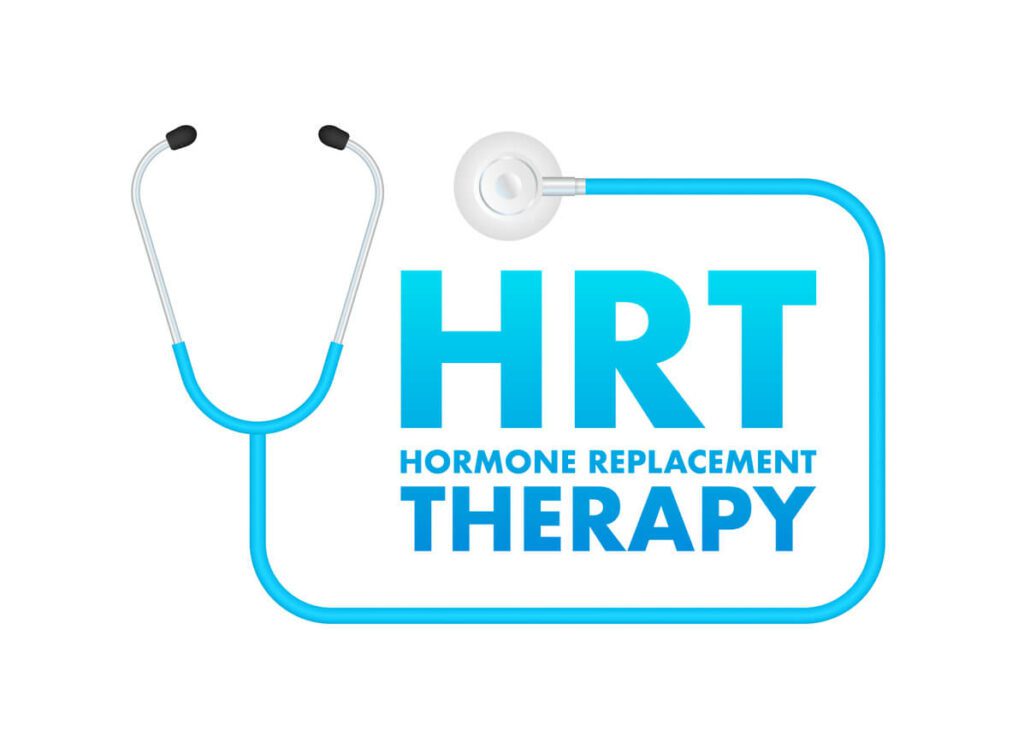Hormone Replacement Therapy (HRT) is a medical treatment used to supplement or replace hormones that the body is no longer producing in sufficient quantities, typically due to aging or certain medical conditions. The goal of HRT is to restore hormonal balance, helping alleviate symptoms related to hormone deficiencies or imbalances, such as menopause, low testosterone in men, or thyroid disorders.
What is Hormone Replacement Therapy?
HRT involves administering hormones like estrogen, progesterone, testosterone, or thyroid hormones, depending on the individual’s needs. It’s widely used to manage the symptoms of menopause in women and testosterone deficiencies in men, as well as for treating conditions like hypothyroidism.
HRT can be administered in several forms, including:
- Pills
- Patches
- Gels or creams
- Injections
- Pellets (implanted under the skin)
Major Benefits of HRT
- Alleviates Menopausal Symptoms
For women undergoing menopause, HRT can significantly reduce symptoms such as hot flashes, night sweats, mood swings, and vaginal dryness. Estrogen therapy is particularly effective for managing these changes. - Promotes Bone Health
Hormone therapy helps prevent the decline in bone density associated with aging, reducing the risk of osteoporosis and bone fractures, especially in postmenopausal women. - Improves Muscle Mass and Strength
In men with low testosterone levels, testosterone replacement therapy (TRT) can improve muscle mass, strength, and energy levels, leading to better physical performance and vitality. - Enhances Cognitive Function
Some studies suggest that HRT may have positive effects on cognitive function, reducing the risk of dementia or memory loss in aging individuals, though research in this area is ongoing. - Boosts Mood and Mental Health
By restoring hormone balance, HRT can reduce symptoms of depression, anxiety, and irritability, improving overall mental health and well-being.
Types of Hormone Replacement Therapy
- Estrogen Therapy (ET): Primarily used for women going through menopause. It can be administered alone or combined with progesterone, depending on whether the woman has had a hysterectomy.
- Testosterone Replacement Therapy (TRT): Common in men with low testosterone levels, TRT helps restore energy, libido, and muscle mass.
- Thyroid Hormone Replacement: Used to treat conditions like hypothyroidism, where the thyroid gland does not produce enough hormones.
- Bio-Identical Hormone Replacement Therapy (BHRT): This involves hormones that are chemically identical to those the body produces naturally. BHRT is often marketed as a more “natural” form of hormone therapy and is used for both men and women.
Risks and Considerations
While HRT can offer significant benefits, it’s not without risks. Some potential risks include:
- Increased risk of blood clots or stroke
- Breast cancer risk (for estrogen-progestin therapy)
- Heart disease (depending on the timing of HRT and individual risk factors)
It is essential to consult with a healthcare provider to weigh the benefits and risks of hormone replacement therapy, considering factors like age, health history, and the specific symptoms being treated.
Where to Get Hormone Replacement Therapy in Tennessee?
At Trulongevity, we offer personalized hormone replacement therapies tailored to your individual needs. Our team provides comprehensive consultations to determine the right treatment approach for you, whether you’re seeking relief from menopausal symptoms, testosterone therapy, or other hormone-related treatments. Contact us today to schedule a consultation and start your journey toward optimal hormone health.

